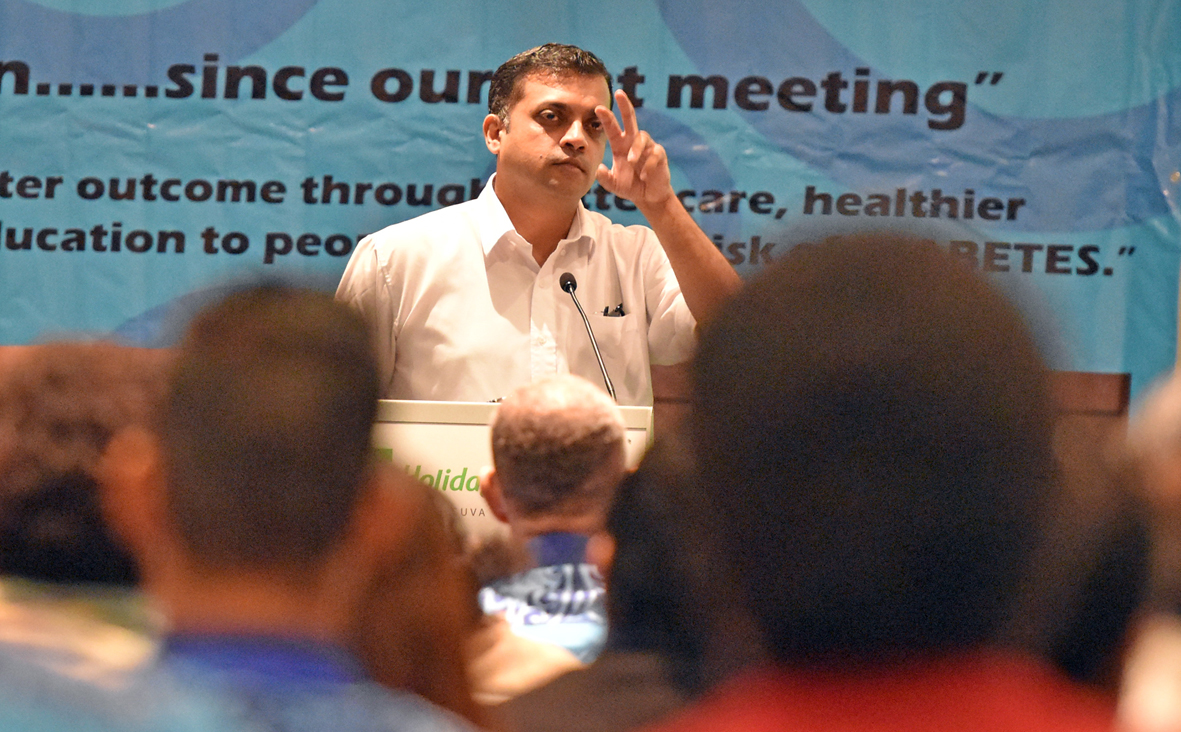IT is shocking that we have an eleven-year-old child as Fiji’s youngest diabetes patient.
The revelation by the Health Ministry’s national adviser for non-communicable diseases, Dr Isimeli Tukana at the second National Foot Care Symposium at Suva’s Holiday Inn is a concern.
The 11-year-old, Dr Tukana confirmed, contracted adult diabetes commonly known as type 2 diabetes.
What should also worry us is the confirmation by Dr Tukana that the number of cases for children who have type 2 diabetes had increased. Children, he said, usually got type 1 which meant they did not have insulin. This meant doctors would give them a certain treatment, but now, he said, they were seeing more cases of type 2 diabetes.
Children now, he said, were eating a lot of unhealthy foods and unhealthy drinks.
Perhaps this is something many parents and guardians may even relate to these days.
We tend to forget the little snacks we offer our children regularly or try to pacify them with these days.
We tend to forget the fact that these days would add up to weeks, months and, if we are not careful, even years.
It means accumulating unhealthy food in children over a period of time that, upon reflection, could actually be shocking to say the least.
Change is critically important.
That means we have to change the way we treat snacks, how we respond to our children daily, how we pacify them, and reward them.
For many parents and guardians, the challenge may be to make a drastic change in behaviour on the home front.
If children are used to receiving snacks regularly, then there is a massive challenge before us to gradually wean them off these.
That isn’t going to be easy.
The incentive though is a healthier child with reduced risk of getting diabetes.
In the long run, our children may even thank us for the initiative.
As Dr Tukana said, there is a need for intervention on children’s health. We should embrace the need to focus on our children and intervene now, and help nurture in them good healthy eating habits.
Pediatrics registrar Dr Torika Kunalau said one of the best methods to address diabetes in children is for mothers to breastfeed their babies.
Infants who were breastfed, she said, had lower chances of contracting insulin dependent diabetes.
The harsh reality is that diabetes is among the top three causes of death and disability in Fiji, said Health and Medical Services Assistant Minister Alex O’Connor.
We should be taking ownership of our health.
Doctors can offer advice and treatment, but change must come from within us.
We need to be aware of symptoms, and the causes of diabetes. Any increase in diabetes and NCDs in the country has to be of great concern to the Health Ministry.
An offshoot of the diabetes issue is the fact that people are having parts of their body amputated.
Surely we all love food.
The question should be how much do we love ourselves and those who are close to us?
If we value and love all those who mean a lot to us, then we should be selective about the kind of food we choose to eat. We should make a concerted effort to exercise daily and make sure we have regular medical check-ups.
Together we should control diabetes.






